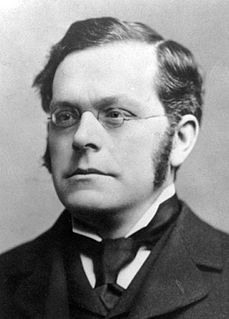A Quote by Confucius
Earnest in practicing the ordinary virtues, and careful in speaking about them, if, in his practice, he has anything defective, the superior man dares not but exert himself; and if, in his words, he has any excess, he dares not allow himself such license.
Related Quotes
No man, however enslaved to his appetites, or hurried by his passions, can, while he preserves his intellects unimpaired, please himself with promoting the corruption of others. He whose merit has enlarged his influence would surely wish to exert it for the benefit of mankind. Yet such will be the effect of his reputation, while he suffers himself to indulge in any favourite fault, that they who have no hope to reach his excellence will catch at his failings, and his virtues will be cited to justify the copiers of his vices.
What a wee little part of a person's life are his acts and his words! His real life is led in his head, and is known to none but himself. All day long, the mill of his brain is grinding, and his thoughts, not those of other things, are his history. These are his life, and they are not written. Everyday would make a whole book of 80,000 words -- 365 books a year. Biographies are but the clothes and buttons of the man -- the biography of the man himself cannot be written.
There is no deception on the part of the woman, where a man bewilders himself: if he deludes his own wits, I can certainly acquit the women. Whatever man allows his mind to dwell upon the imprint his imagination has foolishly taken of women, is fanning the flames within himself -- and, since the woman knows nothing about it, she is not to blame. For if a man incites himself to drown, and will not restrain himself, it is not the water's fault.
Mr. Marx does not believe in God, but he believes deeply in himself. His heart is filled not with love but with rancor. He has very little benevolence toward men and becomes... furious and... spiteful... when anyone dares question the omniscience of the divinity whom he adores, that is to say, Mr. Marx himself.
There is no hope for the world unless and until we formulate, accept and state publicly a true moral code of individualism, based on man's inalienable right to live for himself. Neither to hurt nor to serve his brothers, but to be independent of them in his function and in his motive. Neither to sacrifice them for himself nor to sacrifice himself for them.








































